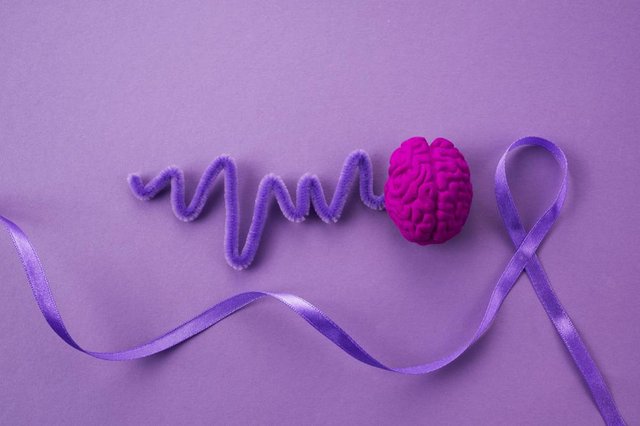Raising awareness for Purple Day and Epilepsy, Year 11 pupil Tara prepared this highly informative presentation for her peers and staff highlighting the importance of understanding what epilepsy is.
“I feel epilepsy needs to be spoken about more as it is a condition that affects people in many unexpected ways, such as causing anxiety and other issues that people may not realise” – Tara.
What is epilepsy?
- Epilepsy is a condition that affects the brain.
- We all have electrical activity constantly happening in our brain. However, people with epilepsy have a sudden burst of intense electrical activity, so the brain’s messages become mixed up. The result is an epileptic seizure.
- Epilepsy can start at any age and there are many different types. Some last for a limited time and the person eventually stops having seizures. But for many, epilepsy is a life-long condition.
- Epilepsy is one of the most common serious neurological conditions in the world. It affects around 600,000 people in the UK. This means that almost 1 in 100 people in the UK have epilepsy.
What are epileptic seizures?
- The burst of electrical activity in the brain is released through the form of epileptic seizures.
- There are many different types of seizure. What happens to someone during a seizure depends on which part of their brain is affected, and how far the seizure activity spreads.
- During some types of seizure, the person may remain alert and aware of what’s going on around them, and with other types they may lose awareness. They may have unusual sensations, feelings or movements. Or they may go stiff, fall to the floor and jerk.
How epilepsy can affect daily living
- Epilepsy is usually a lifelong condition, but most people with it are able to have normal lives if their seizures are well controlled.
- Some people may choose to avoid triggers like strobe lights, avoid becoming too tired, and managing stress.
- In certain circumstances, people who have had uncontrolled epileptic seizures within the last year may not be able to drive or do other activities like laser tag, go karting or working machinery.
- Epilepsy can also take a toll on young people by affecting their attendance and schoolwork, which may lead them to struggle with their behaviour and concentration. This can lead to other issues such as anxiety and depression.
EEGs
- An electroencephalogram (EEG) is a recording of brain activity. During this test, small sensors are attached to the scalp to pick up the electrical signals produced by the brain.
- An EEG is one of the main diagnostic tests for epilepsy.
- This test can be conducted at the hospital (in which they may sleep deprive you to induce seizures to measure in the scan), or the patient may be let out of the hospital and told to wear it for a few days to measure their seizure activity during their everyday life.

